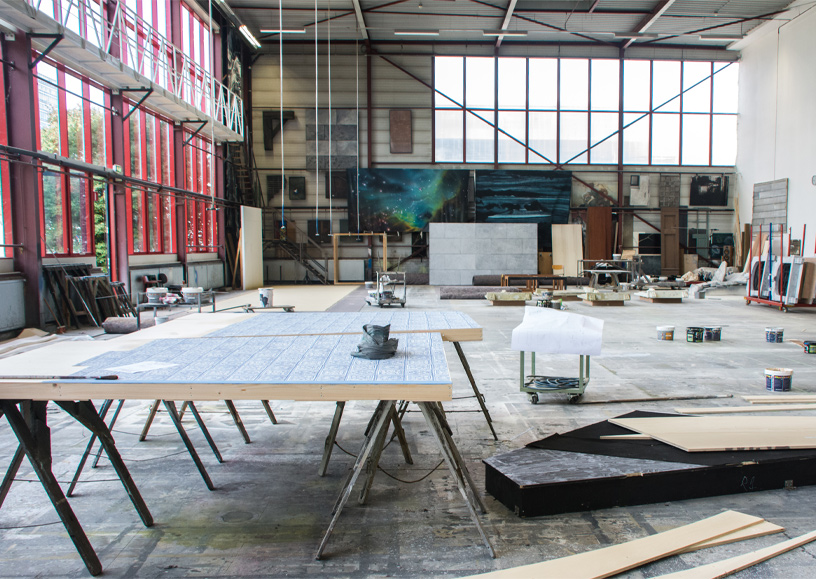
District heating and solar panels: sustainability improvements in the Production Workshop
Dutch National Opera & Ballet (DNO&B) aims to make its Production Workshop building in Amsterdam-Zuidoost as energy-efficient as possible. Rolf Hauser, Head of the Production Workshop, is one of the driving forces behind these sustainability improvements, and with results: ‘those solar panels provide us with a lot of energy.’
When it comes to sustainability, Rolf Hauser is a passionate fellow. In his capacity as Head of the Production Workshop, he is responsible for building the sets for all DNO&B productions. He is also in charge of the Production Workshop building, which is a huge warehouse in Amsterdam-Zuidoost that is becoming more and more sustainable.
Where do you start?
‘The first step was that we transitioned away from natural gas and switched to district heating from Nuon in 2014,’ says Hauser, while he sips his coffee from a recycled mug (‘we don’t use single-use cups any more and why buy new mugs when you can get perfectly good second-hand ones?’). ‘The electricity company used to discharge their hot waste water into the nearby IJsselmeer, but they found a way to channel it into a district heating system. We were one of the first businesses in the local district to be hooked up to this system.’

The second step in the sustainability drive was that all lighting was changed to LED. ‘That made a significant dent in our electricity consumption. We also installed better insulation; that was step 3. Besides lowering our utility bill, the insulation helped to improve the indoor climate for our employees.’
Solar panels
The fly tower has now been outfitted with 680 solar panels (step 4). Hauser: ‘Those panels generate a lot of electricity, so we don’t have to buy as much during the summer. What we do buy is green; it comes from solar and wind parks in the Netherlands.’
Hauser likes to think big. He is disappointed that so few other businesses in the district have embraced solar energy. ‘Just look around you, all you see is empty, flat roofs. If all local businesses were to team up to generate solar power and buy a nitrogen transformer together, we would have a shared energy buffer. That’d be great, especially since the Dutch government will probably do away with the netting scheme (a scheme that allows consumers to offset their electricity consumption against the amount they feed back into the grid, ed.). I’d like for the government to take the lead in this. All businesses should have to install solar panels on their empty roofs. Particularly considerin what we know now about greenhouse gas emissions and the geopolitical situation.’
‘Sustainability should be a source of joy’
The next project is already waiting in the wings: ‘We’re working on heat recovery. Our workshop produces a lot of sawdust. That’s why we need a powerful ventilation system to blow off the filtered exhaust air, which is warm. The air we let in for ventilation purposes is cold and has to be heated first. Wouldn’t it be wonderful if we could use the heat from the exhaust air to warm up the supply air?’
Hauser has plenty of plans and is looking forward to bringing them to fruition: ‘Sustainability should be a source of joy; it’s how we can help protect the planet.’
Text: Anne Havelaar



